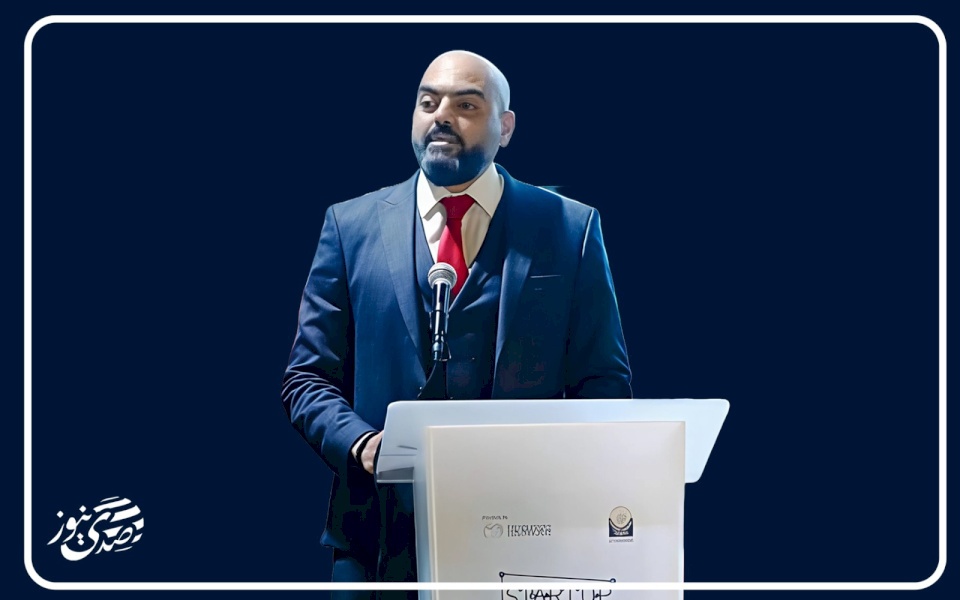
Waiting for You, Mayor
My relationship with Majed Abu Ghosh "the Mayor" has never been a fleeting one between a poet and a writer or two friends sitting in a café or bar in Ramallah. It has been a lifelong relationship. Twenty-five years of companionship, of recklessness and seriousness, of discussions that start with the state of the nation and end with a loud laugh heard throughout the streets of Kark. Every time I saw him, I felt that poetry was walking before me on two feet and that life — with all its harshness — slightly apologizes for being less intense because Majed is here to lighten it.
Anyone who reads his experience may think they know him. But they do not know anything. Majed in life is more brutal and beautiful than he appears in his poems. He is that poet who belongs to the "Poetry of the Outlaws" in its profound meaning: poetry that resembles the hand that knocks on the door of truth without permission. It is a spontaneous, popular, honest writing that is not adorned and does not strive for artifice. His language is simple to the point of scandal, yet it carries more wisdom than the heavy books of philosophy. He does not seek metaphor or grandeur, even though he writes the most beautiful metaphors when he doesn't intend to.
When you read "Rebellion," you feel that Majed writes while panting from the weight of the years he has carried on his shoulders. He says he doesn't like direct speech, but he goes straight to the idea as if knowing that life is not long enough for evasions. The experience has exhausted him, yes; but, like an old horse that has fought for a long time, he still raises his head against the wind, even if fatigue sometimes overcomes him: "At fifty, you count your remaining days." Yet he shouts: "One last dance and I will go..."
Majed, who published eleven poetry collections, was not a poet that only resided on paper. He inhabited all spaces. He knew the alleys of Ramallah, Tulkarm, Jaffa, and Jerusalem more than he knew the lines of his hand. He clung to the earth as if fearing it would be taken away from him again, and he carried Amwas with him wherever he went, as if it were his invisible heart. In our long conversations about the homeland, I felt that for him, Palestine was not geography, but a woman, a mother, a friend, a home, a café, and a childhood that has not healed from pain.
Majed's language belongs to the people. To those who work at night, to those who stand in queues at the crossings, to the women who sell vegetables near the Martyrs' Square. He is the poet of the marginalized, those who rebel against the laws. He does not flatter the authorities, nor does he appease intellectuals, nor does he wave his hand to the editors of cultural pages in Ramallah. He says it plainly: "I will write an ordinary text that does not disturb anyone... that pleases the cultural page editors." He laughs when he says this, but he strikes a blow at the core.
And although his poetry is filled with speed of performance and movement, which precise readers might find constricting, I know for sure that Majed's heart was preoccupied with something larger than a diacritical mark above an Alif or a Dhamma at the end of the line. He was preoccupied with ensuring that the poem remains alive, tense, emerging from the street, not from a linguistic editing hall.
Jaffa has always been his first love. He would speak to me about it as if it were a secret woman known only to him. "I wish I were a grain of sand dissolving in the waves of Jaffa," he says, as if wishing to disappear into her embrace to escape from all of life. And Haifa? That city he yearned for its scent as a teenager longs for his first kiss. As for Gaza, for him, it was another rhythm: "The holiday is still stuck at the doorstep of Gaza," he says it as if Gaza were a child waiting for a long-delayed hug.
And I always used to say to him:
— Majed, when will we go fishing as you promised?
He would laugh his childish laugh and reply:
— When time allows... and time is always stingy.
I knew he was escaping the idea, postponing the meeting as one postpones an internal healing that has not yet come to its time.
And today, while he is on the hospital bed, waiting for his body to rise like the sea after a stormy night, I feel that our appointment with the sea has become more meaningful. It is no longer just a fishing appointment but to catch what remains of light in this desolate world. I wait for him to get up, to wear his gray coat, to carry his old notebook, and for us to stand on the shore of Jaffa or Gaza or any sea he decides to open its doors for us.
Majed...
O my friend who taught me never to surrender,
O my wild tree that does not bend,
O poet who resembles a small boat resisting drowning every night...
We are waiting for you.
And the sea is waiting for you.
And the fish too, Majed, wait for us to catch it together as we dreamed....

While some count the boos, Palestinians count their martyrs.. Paradoxes of the internation...

When the Palestinian Issue is Reduced to Gaza Management

Legally Licensed Occupation

The Absence of the Palestinian Representation and the Bet on Time

Palestine: When the Criminal is Declared a 'Peace Maker'

Don't Blame the Palestinian People for the Failures of Your Regimes and Ideologies

The Flood of Settlement and Displacement in the West Bank

